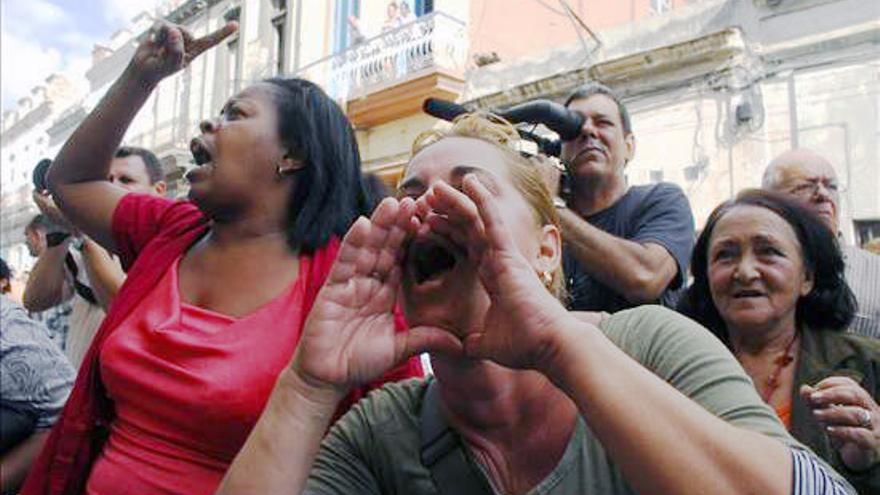
![]() 14ymedio, Karel J. Leyva, Montreal, 1 August 2021 — Citizenship is a condition of civic equality. It is a status of belonging to a political community in which all citizens have the possibility of establishing jointly and under equal conditions both the terms of social cooperation and the collective goods that derive from political association.
14ymedio, Karel J. Leyva, Montreal, 1 August 2021 — Citizenship is a condition of civic equality. It is a status of belonging to a political community in which all citizens have the possibility of establishing jointly and under equal conditions both the terms of social cooperation and the collective goods that derive from political association.
Citizenship requires a political framework in which all citizens are treated impartially, regardless of their ideological conceptions, economic situation or degree of social influence. To do this, citizens must be able to conceive themselves not only as equals to each other, but as belonging to the same State. They must also be treated as rationally autonomous beings, that is, endowed with a rational agency that enables them to publicly deliberate on their concerns and interests.
These conditions of citizenship are weakened from the moment a government defends a specific political doctrine and divides the population, giving preference to sectors that adhere to this doctrine. This is precisely what the Cuban government has been doing for far too long now.
There is no civic equality when calling those who reject the demand to adhere unconditionally to the political ideology preferred by the State mercenaries. By treating its detractors as influenced, manipulated, confused or oriented from the outside, the Cuban Government not only delegitimizes the demands of freedom and democracy from broad sectors of the population, denying the very essence and the exercise of citizenship, but also denies the ability of the Cuban people to think for themselves.
The Government of Cuba has a moral duty to facilitate citizen participation in the political and social processes that determine the present and the future of the Cuban nation. Such participation would make it possible for citizens, without distinction of ideology, beliefs and interests, to shape the political and economic framework capable of defining the quality of life of the Cuban people.
Citizens, to understand themselves as such, must be able to openly debate the problems that affect them directly or indirectly on equitable terms. Instead of using dichotomous categories that establish artificial divisions between the revolutionary people and the counterrevolutionary ’little groups’, between patriots and traitors, between decent and vulgar people, between people who love and people who hate, the Government of Cuba has a moral obligation to respond to the concerns and interests of all Cubans.
The State does not belong to a specific group, nor should it be identified with a particular ideology or political conception that alienates a part of the population.
The way in which a state treats its people determines not only the perception that individuals have of themselves, but the perception that such individuals have of others. the very principle of citizenship will be seriously compromised as long as some citizens feel supported by the Government to publicly repudiate others; as long as a part of the citizenship considers that the ideology they defend authorizes them to exclude dissidents from political processes; and as long as some are socially stigmatized for dissenting and others applauded for agreeing.
Being citizens implies the right to have rights as members of a political community. Such rights — understood as legitimate claims that individuals can make both to others and to their Governments, with the purpose of being treated in accordance with certain standards of decency — must be inscribed in the very nature of social relations on a basis of respect and equality.
A government that puts wooden clubs in the hands of its supporters to repress those who defend their rights not only violates the latter; it violates the very nature of citizenship.
By legitimizing two categories of citizens established according to the degree of affiliation to the political ideology preferred by the State, the Cuban Government sends a message of exclusion and unequal treatment to the Cuban people.
This message clearly states that some people are not full members of the political community, that they cannot speak out publicly on an equal footing with others, and that their interests are not adequately represented by the political institutions of the nation.
In this way, the Cuban political regime treats a part of the population, those who disagree, as second-class citizens.
____________
COLLABORATE WITH OUR WORK: The 14ymedio team is committed to practicing serious journalism that reflects Cuba’s reality in all its depth. Thank you for joining us on this long journey. We invite you to continue supporting us by becoming a member of 14ymedio now. Together we can continue transforming journalism in Cuba.
